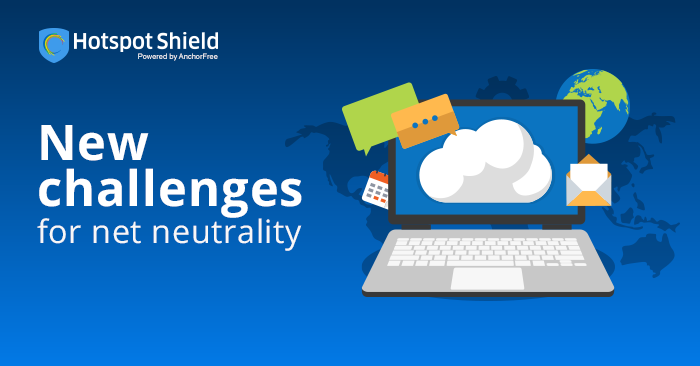How to get a Finnish IP address
The easiest way to improve your digital privacy is to switch your IP address using a VPN. We’ll …

In the simplest of terms, net neutrality refers to the principle that Internet Service Providers (ISPs), governments, or any other parties regulating the internet should treat all data the same. These regulatory bodies cannot charge differently based on variables such as the user, the type of content, the type of equipment used, and a host of others.
2016 was a breakthrough year for net neutrality and its proponents. In June of that year, an appeals court in Washington, D.C. upheld a ruling made by the Federal Communications Commission (FCC) that required all ISPs to adhere to already established rules of “net neutrality,” which the FCC had passed in 2015.
This is beneficial to consumers as it prevents ISPs from “throttling” or intentionally decreasing their bandwidth.
Despite all this good news, net neutrality still faces certain challenges. These challenges encompass issues far more important than internet speed, such as internet security, online privacy, and data control.
Some of the challenges facing net neutrality include:
Although the FCC has made rules that favor net neutrality, they continue to face opposition from organizations that would be adversely affected by changes in protocol. The FCC still receives ex parte filings from industry leaders and congressional lobbyists who are trying to reverse these rules for net neutrality.
Net neutrality has a huge impact on ISPs and similar companies, so it’s understandable that they would want to appeal these rulings. Even now, motions to repeal net neutrality rules are being made within the FCC itself. In April 2017, Ajit Pai, the new chairman of the FCC began a campaign to overturn the new net neutrality regulations.
Certain executives who support this feel like they’re fighting a losing battle when it comes to regulating the issue. Reed Hastings, co-founder and CEO of Netflix, in particular, thinks that rules are so weak that his company has been forced to pay certain ISPs just to stream Netflix content faster and provide better video quality.
Even without the current plans to roll back the FCC’s decisions, the regulations already in place have shaky foundations. They aren’t well enough enforced, so ISPs can still practice bandwidth throttling and control content as if there were no rules at all.
The main objective of net neutrality is to allow each and every user unrestricted access to all the content the internet has to offer. As long as it’s within legal parameters, people should not have to ask permission to view the content they want to view. Furthermore, users should not be discriminated against by ISPs based on factors such as the type of information they want to access or the devices they use.
However, with the recent opposition to net neutrality, the FCC and other government bodies are effectively siding with internet providers. They are letting ISPs control what their subscribers can and cannot see, which defeats the purpose of net neutrality.
Amazon, Mozilla, Reddit, AnchorFree and others are staging a “Day of Action” on July 12 to raise awareness of the issue and oppose the FCC proposal.
Each of us can also take action by voicing our opinion directly to the FCC. The comment period on their net neutrality proposal is open until August 17 and they’ve already received millions of responses. Consumer rights to equal access to content and freedom of information are at stake, so now is the time to take a stand and speak your mind.
